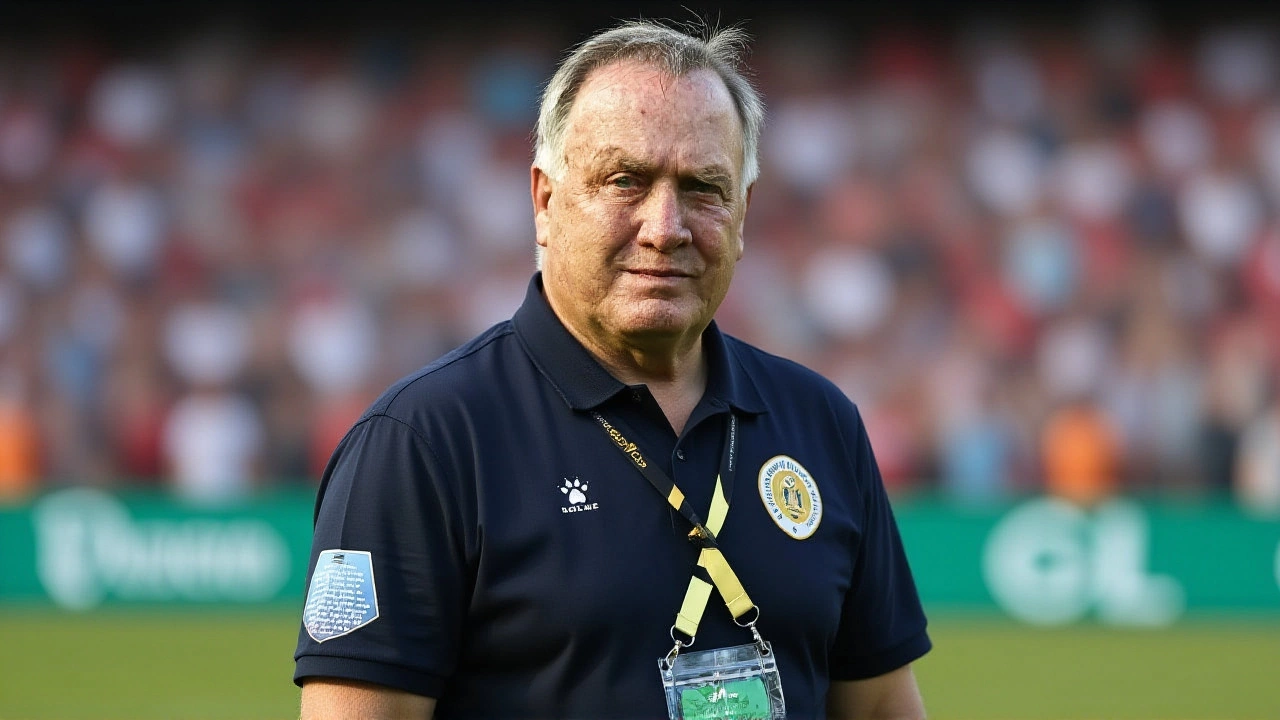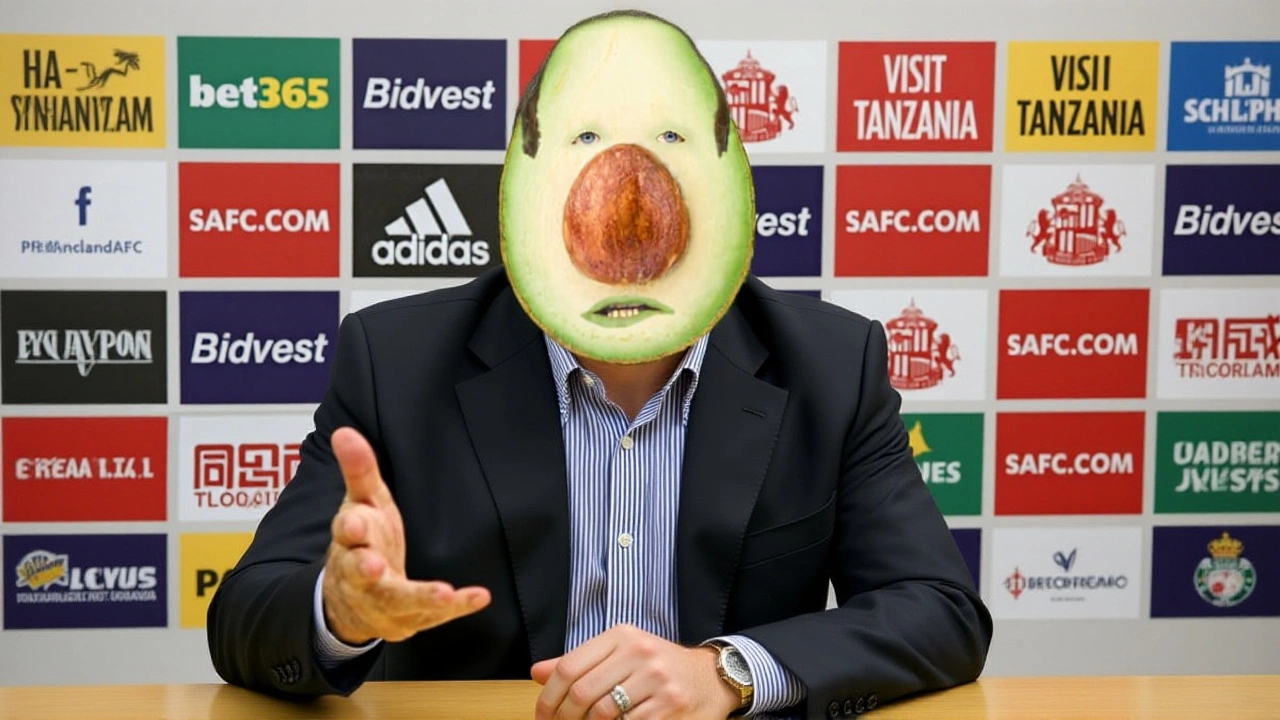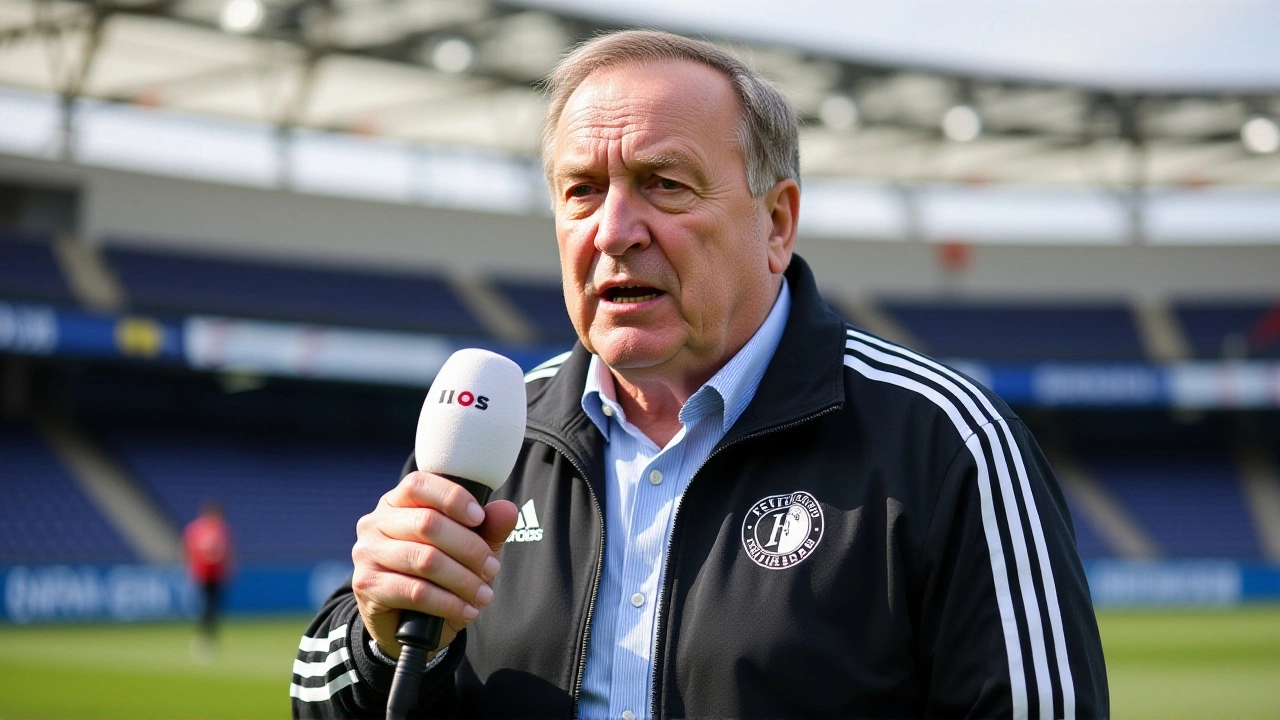When Dick Advocaat walked off the sideline after Curaçao’s 0-0 draw with Jamaica on Tuesday night, he didn’t celebrate with fireworks or chants. He just stared at the scoreboard, hands in his pockets, as if the weight of 44 years in football had finally settled on his shoulders. The result wasn’t pretty — but it was historic. With that draw, the Caribbean island nation of Curaçao became the smallest country ever to qualify for a FIFA World CupNorth America, and its 78-year-old manager, Dick Advocaat, is now poised to become the oldest manager in World Cup history. He’ll be nearly 80 when the tournament kicks off next summer.
A Record That Shouldn’t Exist
Curaçao’s population? Around 160,000. That’s smaller than many English towns. Its national stadium holds 5,000 people — less than half the attendance of a typical Scottish Championship match. And yet, against all odds, this tiny island in the ABC chain has outlasted Jamaica, Honduras, and even Canada in the final round of CONCACAF qualifying. The twist? Advocaat wasn’t even present for the decisive match. He’d left camp days earlier due to a private family matter. His assistant, Giovanni van Bronckhorst (yes, that van Bronckhorst — the former Barcelona and Netherlands star), led the team on the pitch. But make no mistake: this was Advocaat’s project. His system. His discipline. His stubborn belief that football isn’t about size — it’s about structure.
The Man Behind the Miracle
Dick Advocaat didn’t stumble into this role. He’s been doing this since the 1980s. He managed the Netherlands national team three separate times — once winning the 1988 European Championship as assistant, then leading them to the 2006 World Cup. He’s coached in Russia, South Korea, the United Arab Emirates, and even Iraq. He took over Curaçao in 2022, when they were ranked 167th in the world. Two years later, they’re in the World Cup. ESPN called it “arguably his greatest against-all-odds glory.” And that’s saying something.
His club career is no less storied. At Rangers, he became the first foreign manager in the club’s 140-year history. In 1999–2000, he led them to a record 21-point margin in the Scottish Premier League — a feat that still stands. Fans wore orange shirts to the Scottish Cup Final that year, honoring his Dutch roots. He also saved Sunderland from relegation in 2015, visibly crying after their 0-0 draw at Arsenal. That emotional moment? It wasn’t the end of his story. It was just another chapter.

Why This Matters Beyond the Record
This isn’t just about age or statistics. It’s about what football can still achieve when experience meets grit. Advocaat’s success with Curaçao proves that World Cup qualification isn’t reserved for nations with billion-dollar budgets or academies with 10,000 players. It’s about organization, culture, and leadership — the kind you can’t buy. He didn’t have elite talent. He had discipline. He didn’t have youth. He had wisdom.
Compare this to the U.S. Men’s National Team, which struggled through a chaotic qualifying campaign despite massive resources. Or Canada, which invested heavily in infrastructure but still needed a last-minute win to qualify. Meanwhile, Curaçao — with no professional domestic league, no state-of-the-art training center, and a national team made up mostly of semi-pros playing in Europe’s lower divisions — punched through. Advocaat didn’t recruit stars. He built a system. He demanded accountability. He made players believe they belonged.
What Comes Next?
Advocaat says he’ll manage Curaçao through the 2026 World Cup — even if he turns 80 before the final whistle. That’s unprecedented. The previous record holder, Germany’s Otto Rehhagel, was 71 years and 317 days old when he led Greece to the 2010 World Cup. Advocaat will be over 79. He’s not slowing down. He’s redefining what’s possible.
There’s no contract extension yet, but insiders say he’s already planning for the group stage. He’s studying opponents. He’s analyzing set pieces. He’s even learning Creole phrases to connect with players. “He doesn’t sleep,” one Curaçao staff member told me. “He wakes up at 5 a.m. to watch film. Then he calls me at 6 a.m. to ask if we’ve got enough water bottles for training.”

The Legacy of a Man Who Refused to Retire
Advocaat’s career has been a series of second chances. He was fired by Rangers in 2001 after a turbulent end. He was criticized for his rigid tactics in Russia. He was written off after his short, rocky stint with Iraq in 2021. But here’s the thing: he never stopped believing in the game. He never stopped showing up. And now, at an age when most men are gardening or traveling, he’s on the brink of footballing immortality.
There’s a photo from the Curaçao camp last month — Advocaat, in a faded tracksuit, kneeling beside a 17-year-old midfielder, adjusting his shin guards. The boy’s eyes are wide. He’s never met anyone like this. Maybe he’ll never forget it.
Frequently Asked Questions
How did Curaçao manage to qualify despite having such a small population?
Curaçao’s success came from disciplined organization, not talent. Advocaat built a compact, defensively solid system that maximized limited resources. The team relied on players from the Dutch lower leagues, many of whom have Curaçaoan heritage. With no professional domestic league, they trained in short, intense camps — focusing on set pieces, fitness, and mental toughness. Their qualification was built on consistency, not flash.
Why is Dick Advocaat considered the best choice for Curaçao?
Advocaat has a proven track record with underdogs. He led the Netherlands to the 2006 World Cup and saved Sunderland from relegation with minimal resources. His experience managing in Russia, Korea, and the UAE gave him the cultural adaptability Curaçao needed. More importantly, he doesn’t rely on money — he relies on structure. His calm, methodical approach was exactly what a nation with little football infrastructure required.
What record is Advocaat breaking, and who held it before?
Advocaat will break the record for oldest manager to qualify for a World Cup, previously held by Germany’s Otto Rehhagel, who was 71 years and 317 days old when he led Greece in 2010. Advocaat, born on January 27, 1947, will be approximately 79 years and 8 months old during the 2026 World Cup. No manager in history has led a team to the tournament past age 78.
Did Advocaat coach Curaçao during their decisive qualifying match?
No. Advocaat left the team’s camp before the final match against Jamaica due to a private family matter. His assistant, former Barcelona star Giovanni van Bronckhorst, took charge on the sideline. But the tactical setup, player selection, and team culture were entirely Advocaat’s. The staff confirmed he remained in constant communication throughout the match.
What’s the significance of Curaçao qualifying as the smallest nation ever?
Curaçao’s population of 160,000 is smaller than many European cities — smaller than cities like Malmö or Ljubljana. No nation with fewer than 200,000 people has ever qualified for a World Cup. Their success shatters the myth that only wealthy, populous countries can compete at the highest level. It proves that passion, organization, and leadership can overcome massive resource gaps.
Will Advocaat manage Curaçao during the actual World Cup in 2026?
He has not signed a formal contract extension beyond qualification, but multiple sources close to the team confirm he intends to manage through the tournament. His age is not a barrier — it’s part of his strength. He’s already planning training schedules and opponent analysis. If he leads Curaçao on the pitch in 2026, he’ll be the oldest manager ever to coach in a World Cup match — a milestone no one thought possible.
